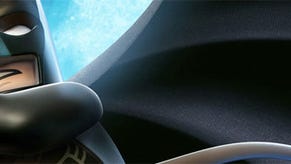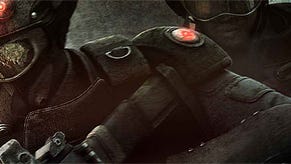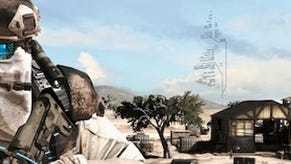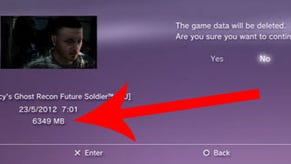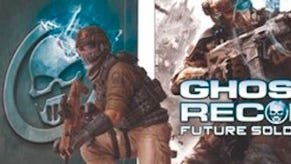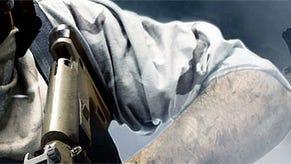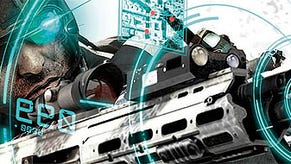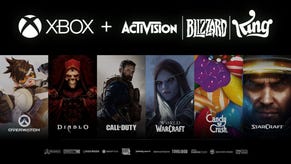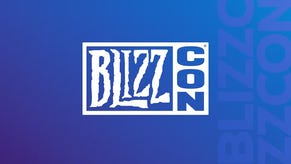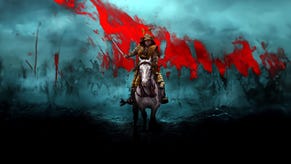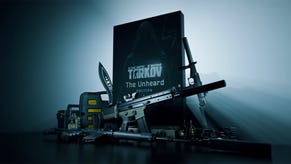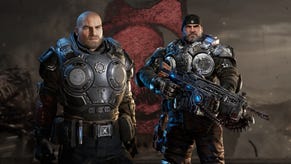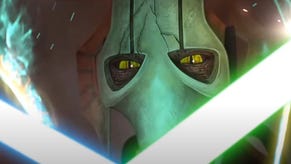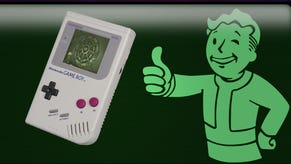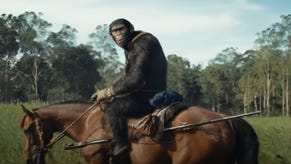Waiting game: Ghost Recon heads on slips and creativity
As Ghost Recon: Future Soldier readies its assault on consoles, Stace Harman tracks down director Eric Couzian and production manager Yann Suquet to talk delays and the on-off PC version.
Protracted gestation periods and frequent delays are not novel concepts in video game development. But while the circumstances surrounding postponements do much to inform generalised pre-conceptions of a title, they rarely have a predictable impact on its eventual quality.
Consider the myriad differences between the oft pushed-back but eventually sublime Team Fortress 2 - shown at E3 1999 and released eight years later – and Duke Nukem Forever, which was awarded numerous vapourware titles during its 14 year birthing and received a tepid critical reception upon release.
By comparison, Ghost Recon: Future Soldier’s development period seems entirely reasonable: announced early in 2009 and now due to land on PS3 and 360 in May of 2012. Indeed, little might have been said had its arrival not been repeatedly forecast and delayed without satisfactory explanation throughout that three-year period.
Sitting down with director Eric Couzian and production manager Yann Suquet, I push them for more information regarding the finally-dated console version as well as the PC version that has, by turn, been announced, delayed, cancelled-due to-piracy-concerns, “never existed”, announced again and now slapped with an ominous release date of “later this year”.
“When you begin development, you try out various mechanics and, naturally, some of them work but some don’t,” begins Couzian. “Sometimes, because you are emotionally involved in the process, it can take a long time to admit that it’s not working. You can spend a year making things, not all of them you keep, but you learn from that process.”
“It’s important to acknowledge that it’s an experience you’re creating,” adds Suquet. “While you might know what you want the overall experience to be, it can take time to work out how to achieve that. It’s why the development process is based on iteration”
“Iterative design” is a go-to phrase for many a developer. It describes a basic and well-established work process without revealing any details and is, beyond anything else, blindingly obvious: rarely does a creative work come together all at once in a brilliant flash of inspiration; rarely is the initial execution of an idea considered the best it can be. It’s why writers edit, directors re-shoot, artists erase and architects re-design.
The challenges of iterative design become more apparent the greater the number of people involved in a project. For an individual, or even the most tightly-focused of teams, the temptation to iterate ad infinitum can prove too great and the constant revisiting and refinement of an individual element can jeopardise or delay the process of incorporating it with the overall design.
“Working with stress can be good; it forces you to make decisions. If you know that you’re releasing the game in three years you can procrastinate, you light all of the fires just to see what will work and what won’t. Ultimately, you have to take the decision, even if it turns out to be a wrong one. The worst thing that can happen is to not make a decision.”
“So, at some stage, you have a puzzle of individual elements that work but you must blend those together and do so consistently,” explains Couzian. “You don’t just fit them together mechanically and have it all work.”
“You must always remember that you’re creating an experience, not assembling a car,” agrees Suquet.
I am not a number
At the height of its development, Ghost Recon: Future Soldier has seen upwards of 300 people involved. Numbers like this tend to raise eyebrows, leading the more cynical respondent to question how truly integrated the key features can be and, drawing on Suquet’s own car analogy, conjure images of a huge production plant in which anonymous employees hammer boilerplate features into a generic framework.
For Suquet, it’s imperative that smaller teams with a headcount of around 20 constitute that headline 300, in order to maintain a feeling of individualism and identity.
“Creative people need room to create,” he posits. “If you have a number of smaller teams, each person within that smaller team feels ownership for something, and that motivates them.
“You need them to feel responsible and proud of what they are doing,” Couzian adds.
“Definitely,” Suquet nods. “A creative person that is not proud of what they are doing makes what they are doing worthless, and that harms the project and those around them.”
It sounds like a nourishing environment in which to work, doesn’t it? Time to establish a clear vision, to make mistakes, to learn and adapt during the process – so, why mention release windows at all? Why not let the creative minds run riot and slap on a label that reads “ready when it’s ready”?
Surely, the repeated delay of an announced project can only serve to frustrate your intended audience, building expectation that cannot possibly be met and causing that all-important rich vein of potential customers to become increasingly disenfranchised.
You can look at other high profile Ubisoft titles such as I Am Alive and Beyond Good and Evil 2 for examples of how hungry anticipation can turn to confusion and frustration, but Couzian believes announcing a release date works in favour of development teams overall, even if it can sometimes mean delays are as visible as they are unwelcome.
“Working with stress can be good; it forces you to make decisions,” Couzian insists. “If you know that you’re releasing the game in three years you can procrastinate, you light all of the fires just to see what will work and what won’t. Ultimately, you have to take the decision, even if it turns out to be a wrong one. The worst thing that can happen is to not make a decision.”
PC or not PC?
“We never cancelled it. It was a misunderstanding, genuinely,” Suguet adamantly insists of the PC version of Future Soldier. “Sebastien [Arnoult], the producer of GR: Online, said something in an interview - I don’t remember exactly what it was - and it was misinterpreted, taken out of context and turned in to this scenario where people were not only saying that we weren’t doing Future Soldier on PC but that Ubisoft was going to stop making PC games altogether.
“It just wouldn’t make any sense,” agrees Couzian “Ghost Recon is a great fit for PC and we have many fans on PC, it just wouldn’t make any sense to not do it.”
Ubisoft’s PC misadventures could fill their own article (and thanks to Nathan, they did back in November). Suffice to say, following Sebastien Arnoult’s comments concerning Ghost Recon Online, various media outlets reported the cancellation of the PC version of Ghost Recon: Future Soldier. Ubisoft itself did not refute the dire news, reportedly stating that it had never confirmed a PC SKU.
Regardless of what has gone before, Ghost Recon: Future Soldier will launch on PC, albeit “at a later date."
Wrapping up the conversation with Couzian and Suquet, I ask them about balancing Ghost Recon’s gung-ho antics with its stealth-soldiering. Lobbing intel grenades to gather enemy intelligence, hiding in plain sight with optical camouflage and deploying covert remote-control drones is a joy for budding strategists. It also provides a more sedate pace than missions involving close-combat fire-fights in busy Pakistan streets that come with the contrived fail-condition of harming more than a handful of civilians.
“I strongly believe that, as with any movie, you need pacing and contrasts in a videogame,” explains Couzian. "The core of the game is to offer the player this freedom of expression so if they want to be intel-focused, they can. But, if I offer the whole game like this the player doesn’t always know what’s best for their own experience, so it’s our job to sometimes encourage a change of pace. It’s a question of contrast.
“The objective is to bring new people into the game, accessibility is very important to me and was an underlying factor when creating the game. Accessibility doesn’t have to mean less difficult or less challenging, just providing more comfort for the player so that they don’t have to press eight buttons for one function, also to provide more feedback and make the character more reactive.”
The game is finished, Couzian insists, so any time spent on it between now and its May release for 360 and PS3 will be to add those all-important layers of polish. Based on this preview build, the areas in most immediate need of buffing are the optimisation of textures and squishing of bugs.
After three years and numerous delays it seems that Ghost Recon: Future Soldier will finally emerge from the wilderness, packing near-future weaponry and cloaked by optical camouflage; it will be interesting to see if it’s able to creep up on gamers and surprise them or if it passes them by without being noticed.



